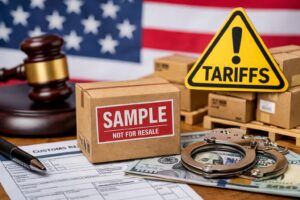Incoming China FDI. Gone with the Wind.
If you are waiting for your Chinese investor to get your company promised investment funds any time soon, you are probably in for a long slog. Most companies, both private and public, do not care who provides their investment capital (as long as the investors are content being passive investors), and Chinese households have typically been lauded as excellent savers, leaving money available to invest at home and abroad.
With my law firm having four West Coast offices, we definitely get our fair share of work from U.S. companies in various stages of securing (or not) Chinese investment. In those deals we often hear something like the following: “The other owners tell me they have friends in China who can put in enough money into the company so they can buy me out. But they are having trouble getting their money out of China right now. Do you think they will be able to get their money from China to the U.S. in the next few weeks?” My response is usually something like “that is not likely to happen soon, and it may not be possible to accomplish even in a few months.” China’s government has a tight grip on its money (technically renminbi (人民币) means “the people’s money”, but the people can’t be bothered to look after their own money, right?). Even when times are good, China controls foreign currency leaving the country, especially U.S. dollars.
But times are not good in China. How do we know times are not good in China? There are a lot of smart people in the world who track where money flows and how that movement (or lack thereof) impacts our qualities of life. They are called macro (big picture) economists. These economists have noticed that (a) although China is encouraging foreign investment in its banking and insurance sectors, promising ownership of up to 100% by foreign investors, so far no one is biting, and (b) foreign lending institutions are loathe to provide capital to Chinese banks and industries, seeing economic risks in China everywhere they look.
Chinese would-be investors in U.S. ventures are finding it exceedingly difficult to get money out of China, even their allotted USD $50,000 in foreign currency each Chinese national is permitted to transfer out of China, according to China’s State Administration of Foreign Exchange. But in practice, such applications are being more closely scrutinized by China’s ever-present bureaucratic machine, and even China’s elites, like the former central bank adviser, Yu Yongding, are being denied access to foreign currency. That means your prospective Chinese investor or business partner (or customer who owes you money for your raw inputs, such as U.S. timber) may not be able to get you those U.S. dollars you have been waiting for any time soon, no matter how well connected they are.
Why is China holding onto U.S. dollars? China needs to maintain its foreign exchange reserves (largely held in dollars) for several reasons. One of the primary reasons is so China can continue to fund its global export machine that does business in U.S. dollars with the rest of the world. Chinese exporters buy their raw inputs in U.S. dollars, so China’s central bank needs to keep sufficient foreign exchange reserves to facilitate those transactions. A second reason is that to the extent China can keep U.S. dollars out of circulation, China can artificially keep its currency value low against a stronger U.S. dollar, which makes its exports more affordable to the U.S. and to the rest of the world. China holds more than $3 trillion in of its assets in a foreign currency, which equals approximately $2,142 per capita in China’s 1.4 billion population (in comparison, the U.S.’ $126 billion in foreign exchange reserves equals approximately $385 per capita in the U.S.’ 327 million population). China’s currency restrictions are not new. These restrictions are an integral part of China’s economic policies under which China wants to keep its yuan valuation at 7:1 compared to the U.S. dollar. China can also use its foreign currency holdings to buy up yuan when others are trying to dump it, to keep the yuan from freefalling in foreign exchange markets due to concerns like a trade war or ongoing economic restrictions or sanctions.
To bring this discussion full circle, if your would-be business investors are Chinese companies or citizens or have money in Chinese bank accounts that they are having “a little trouble” getting to your U.S. bank account, you should not be making near-term plans that rely on their promised dollars. Chinese currency leaving for foreign markets is a form of capital flight to which China is keenly attuned and to which it will take strong measures, both overt (currency manipulation) and covert (denying individual foreign exchange transactions in Chinese banks, even when those transactions are in sync with Chinese law).
We recently had to deal with the above issues while representing a large cannabis company in California. The interesting thing about those deals is that they also implicate criminal laws in both China and the United States. Though China on the one hand makes a huge portion of the world’s vape products and other cannabis accessories and is a leading exporter of CBD, both CBD and cannabis are illegal in China and those involved with it face harsh criminal penalties. Though all three states in which our law firm is located (Washington, Oregon, and California) have legalized cannabis, it remains illegal at the federal level. What all of this means for China-US cannabis deals is that there are added risks, of which the parties are oftentimes completely unaware. By way of one example, if your international investor has already applied or wants to apply for a fast-track EB-5 visa path to U.S. citizenship, their investing your cannabis venture is a huge red flag that will derail their application process and impact their ability (if they are or become a green card holder) to become a naturalized citizen because they will have been involved with a controlled substance under U.S. federal law. If the potential investor’s immigration attorney is not aware of that minor detail, then you can do your investor a favor and let them know. For a primer on foreign investment in U.S. cannabis businesses, read this. Knowing China’s distaste for cannabis also means many Chinese cannabis investors very much want to maintain their privacy when investing in U.S. cannabis ventures, yet due to state transparency laws, accomplishing this is rarely easy and sometimes just not possible.
All this makes cannabis and China a fun mix for international cannabis lawyers, but most fail to find much humor in it.
























